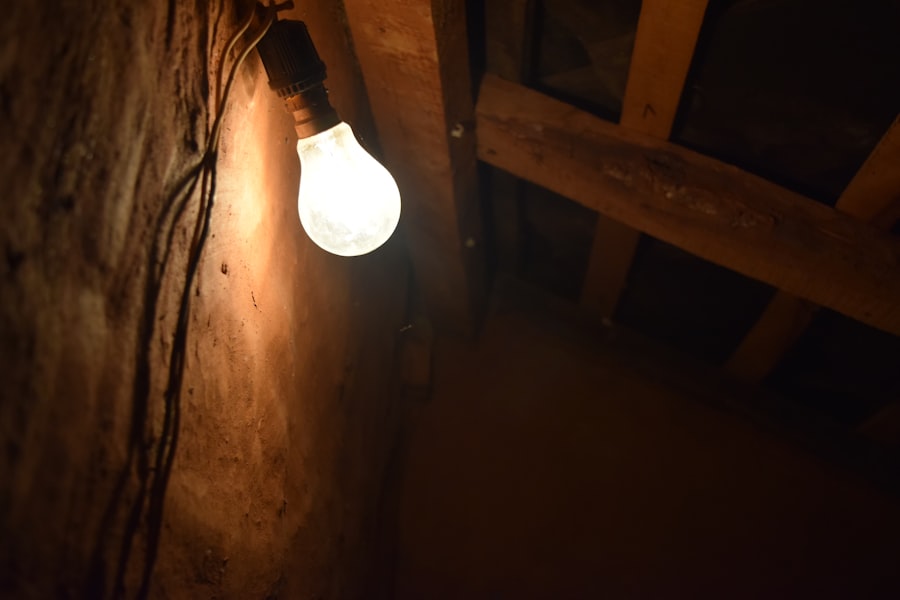Temperature management is a critical aspect of chicken husbandry. Chickens are temperature-sensitive and require specific environmental conditions to thrive. The optimal temperature range varies based on the age of the birds and seasonal factors.
Newly hatched chicks need an initial temperature of approximately 95°F (35°C) in their first week, with a gradual reduction of 5°F (2.8°C) per week until they acclimate to the ambient temperature. For mature chickens, the ideal temperature range is between 45°F and 75°F (7°C to 24°C). Maintaining appropriate temperatures is essential for chicken health and productivity.
Exposure to excessively cold temperatures can result in frostbite, decreased egg production, and mortality. Conversely, high temperatures can lead to heat stress, reduced feed consumption, and diminished egg production. Regular temperature monitoring and adjustment are necessary to ensure optimal conditions for chicken welfare and performance.
To maintain suitable temperatures for chickens, several strategies can be employed. These include providing adequate shelter and insulation, utilizing heat lamps and heating pads, ensuring proper ventilation, supplying warm bedding and nesting materials, offering appropriate nutritional support, and consistently monitoring and adjusting environmental conditions as needed.
Table of Contents
- 1 Providing Proper Shelter and Insulation
- 2 Using Heat Lamps and Heating Pads
- 3 Ensuring Good Ventilation
- 4 Offering Warm Bedding and Nesting Materials
- 5 Providing Additional Nutritional Support
- 6 Monitoring and Adjusting as Needed
- 7 FAQs
- 7.1 What temperature do chickens need to be kept warm?
- 7.2 How can I keep my chickens warm in cold weather?
- 7.3 What are some signs that my chickens are too cold?
- 7.4 Are there any specific breeds of chickens that are better suited for cold weather?
- 7.5 Can I use a heat lamp to keep my chickens warm?
Key Takeaways
- Chickens prefer a temperature range of 65-75°F, with younger chicks needing higher temperatures.
- Proper shelter and insulation, such as draft-free coops and insulated walls, are essential for maintaining ideal temperatures.
- Heat lamps and heating pads can be used to provide additional warmth, especially during colder months.
- Good ventilation is crucial to prevent moisture buildup and maintain air quality within the coop.
- Offering warm bedding and nesting materials, such as straw or wood shavings, can help chickens stay cozy and comfortable.
Providing Proper Shelter and Insulation
Insulation and Bedding
Providing adequate bedding such as straw or wood shavings can help insulate the coop and keep the chickens warm. During the winter months, it’s essential to provide additional insulation to help retain heat in the coop. This can be achieved by adding extra layers of insulation to the walls and roof, as well as using draft guards around doors and windows.
Maintenance and Ventilation
It’s vital to keep the coop clean and dry, as moisture can make it harder for chickens to stay warm. In the summer months, proper ventilation is key to keeping the coop cool. This can be achieved by installing windows or vents to allow for air circulation.
Shade and Protection
It’s also important to provide shade in the chicken run to protect them from direct sunlight and heat. By providing proper shelter and insulation, you can help ensure that your chickens are comfortable and protected from extreme temperatures.
Using Heat Lamps and Heating Pads

In addition to providing proper shelter and insulation, heat lamps and heating pads can be used to help maintain the ideal temperature for chickens, especially during the colder months. Heat lamps can be hung in the coop to provide supplemental warmth, particularly for young chicks or during periods of extreme cold. It’s important to position the heat lamps at a safe distance from flammable materials and to secure them properly to prevent any accidents.
Heating pads can also be used to provide warmth for chickens, particularly for brooding hens or sick or injured birds. Heating pads should be placed in a safe location within the coop and monitored regularly to ensure they are functioning properly. It’s important to use heating pads specifically designed for use with animals and to follow the manufacturer’s instructions for safe use.
When using heat lamps or heating pads, it’s important to monitor the temperature in the coop regularly to ensure that it remains within the ideal range for chickens. It’s also important to have a backup plan in case of power outages or equipment malfunctions. By using heat lamps and heating pads responsibly, you can help ensure that your chickens stay warm and healthy during colder weather.
Ensuring Good Ventilation
Good ventilation is essential for maintaining a comfortable environment for chickens, regardless of the time of year. Proper ventilation helps remove excess moisture, ammonia, and airborne pathogens from the coop, which can contribute to respiratory issues and other health problems in chickens. In addition, good ventilation helps regulate the temperature in the coop by allowing for air circulation.
During the winter months, it’s important to strike a balance between providing adequate ventilation and retaining heat in the coop. This can be achieved by installing adjustable vents or windows that can be opened or closed as needed. It’s also important to ensure that there are no drafts in the coop that could make it harder for chickens to stay warm.
In the summer months, good ventilation is crucial for keeping the coop cool and preventing heat stress in chickens. This can be achieved by installing windows or vents that allow for air circulation without exposing the chickens to direct drafts or extreme temperatures. It’s also important to provide shade in the chicken run to protect them from direct sunlight.
By ensuring good ventilation in the coop, you can help maintain a comfortable environment for your chickens year-round. Regularly inspecting and cleaning vents and windows can help prevent blockages and ensure that air can flow freely through the coop.
Offering Warm Bedding and Nesting Materials
Offering warm bedding and nesting materials is another important factor in maintaining the ideal temperature for chickens. Bedding such as straw, wood shavings, or shredded paper provides insulation and helps keep chickens warm during colder weather. It’s important to regularly clean and replace bedding to prevent moisture buildup and maintain a dry environment.
Nesting materials such as straw or hay provide a cozy place for hens to lay their eggs and help keep them warm during incubation. Providing ample nesting boxes with clean, dry bedding can encourage hens to lay eggs in a comfortable environment. It’s important to regularly clean and replace nesting materials to prevent the buildup of bacteria and parasites.
In addition to providing warm bedding and nesting materials inside the coop, it’s important to offer protection from cold drafts in outdoor areas such as chicken runs. This can be achieved by providing windbreaks or shelters that offer protection from wind and cold temperatures. By offering warm bedding and nesting materials, you can help ensure that your chickens have a comfortable and cozy environment year-round.
Regularly cleaning and replacing bedding and nesting materials can help prevent health issues and maintain a clean living space for your chickens.
Providing Additional Nutritional Support

Supporting Chickens in Cold Weather
During colder weather, chickens require more energy to stay warm, so it’s essential to provide a balanced diet that includes high-quality feed with adequate protein and fat content. Supplemental treats such as cracked corn or mealworms can also provide extra energy during colder months.
Keeping Chickens Hydrated in Hot Weather
In hot weather, it’s vital to provide access to fresh, cool water at all times to help chickens stay hydrated and regulate their body temperature. Offering electrolyte supplements in their water can also help replenish essential nutrients lost through heat stress.
Monitoring and Adjusting the Diet
It’s essential to monitor your chickens’ body condition regularly and adjust their diet as needed based on their activity level and environmental conditions. This will help ensure that your chickens receive the necessary nutrients to stay healthy and comfortable.
Year-Round Health and Comfort
Providing additional nutritional support can help ensure that your chickens have the energy they need to stay healthy and comfortable year-round.
Monitoring and Adjusting as Needed
Monitoring your chickens’ behavior and condition is crucial for ensuring that they are comfortable and healthy in their environment. Regularly observing their activity level, eating habits, and body condition can help you identify any signs of discomfort or stress related to temperature changes. It’s important to regularly check the temperature inside the coop using a thermometer and make adjustments as needed to maintain the ideal range for your chickens.
This may involve adjusting heating equipment, opening or closing vents or windows, or providing additional bedding or nesting materials. During extreme weather conditions such as heatwaves or cold snaps, it’s important to take extra precautions to ensure that your chickens are safe and comfortable. This may involve providing additional shade or cooling methods during hot weather, or using supplemental heating methods during cold weather.
By monitoring your chickens’ behavior and condition regularly and making adjustments as needed, you can help ensure that they have a comfortable and healthy living environment year-round. Being proactive in addressing temperature-related issues can help prevent health problems and ensure that your chickens thrive in any weather conditions.
If you’re interested in learning more about caring for geese, you may want to check out this article on how to care for goslings. It provides valuable information on how to properly care for and raise young geese, which can be a helpful resource for anyone looking to expand their poultry flock.
FAQs
What temperature do chickens need to be kept warm?
Chickens need to be kept at a temperature of around 50-60 degrees Fahrenheit to stay warm and healthy.
How can I keep my chickens warm in cold weather?
You can keep your chickens warm in cold weather by providing them with a well-insulated coop, using heat lamps or heaters, and ensuring they have access to plenty of food and water.
What are some signs that my chickens are too cold?
Signs that your chickens are too cold include huddling together, shivering, decreased egg production, and pale combs and wattles.
Are there any specific breeds of chickens that are better suited for cold weather?
Yes, some breeds of chickens are better suited for cold weather, such as the Plymouth Rock, Orpington, and Wyandotte.
Can I use a heat lamp to keep my chickens warm?
Yes, a heat lamp can be used to keep chickens warm, but it should be used with caution to prevent fire hazards and burns to the chickens.
Meet Walter, the feathered-friend fanatic of Florida! Nestled in the sunshine state, Walter struts through life with his feathered companions, clucking his way to happiness. With a coop that’s fancier than a five-star hotel, he’s the Don Juan of the chicken world. When he’s not teaching his hens to do the cha-cha, you’ll find him in a heated debate with his prized rooster, Sir Clucks-a-Lot. Walter’s poultry passion is no yolk; he’s the sunny-side-up guy you never knew you needed in your flock of friends!







